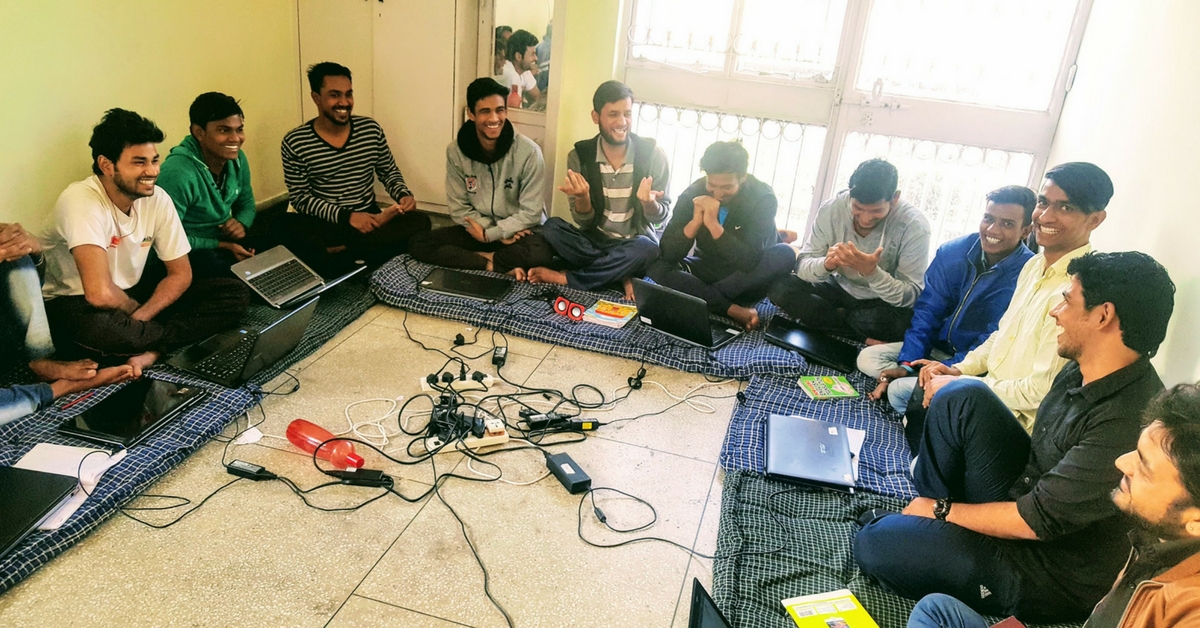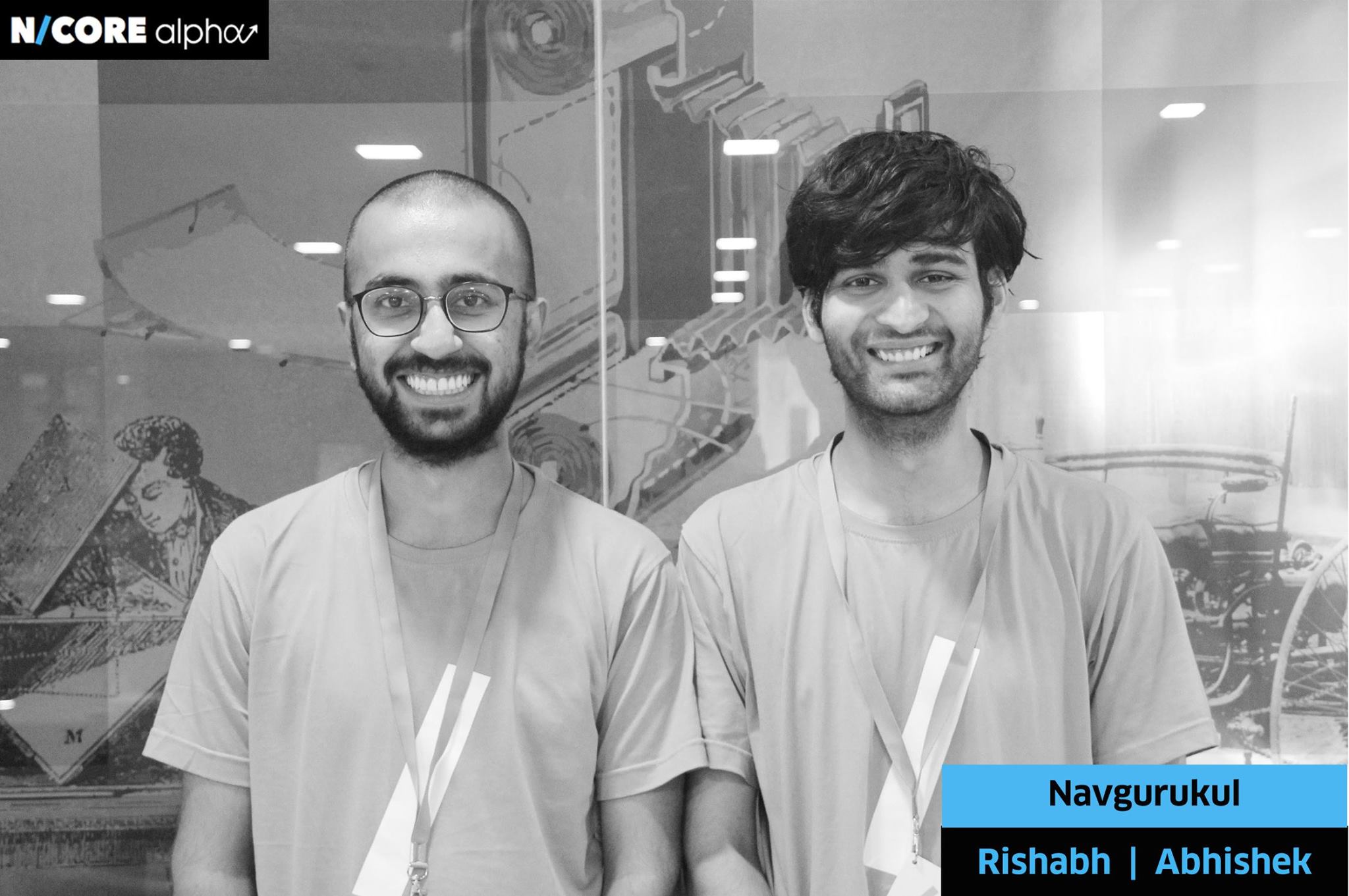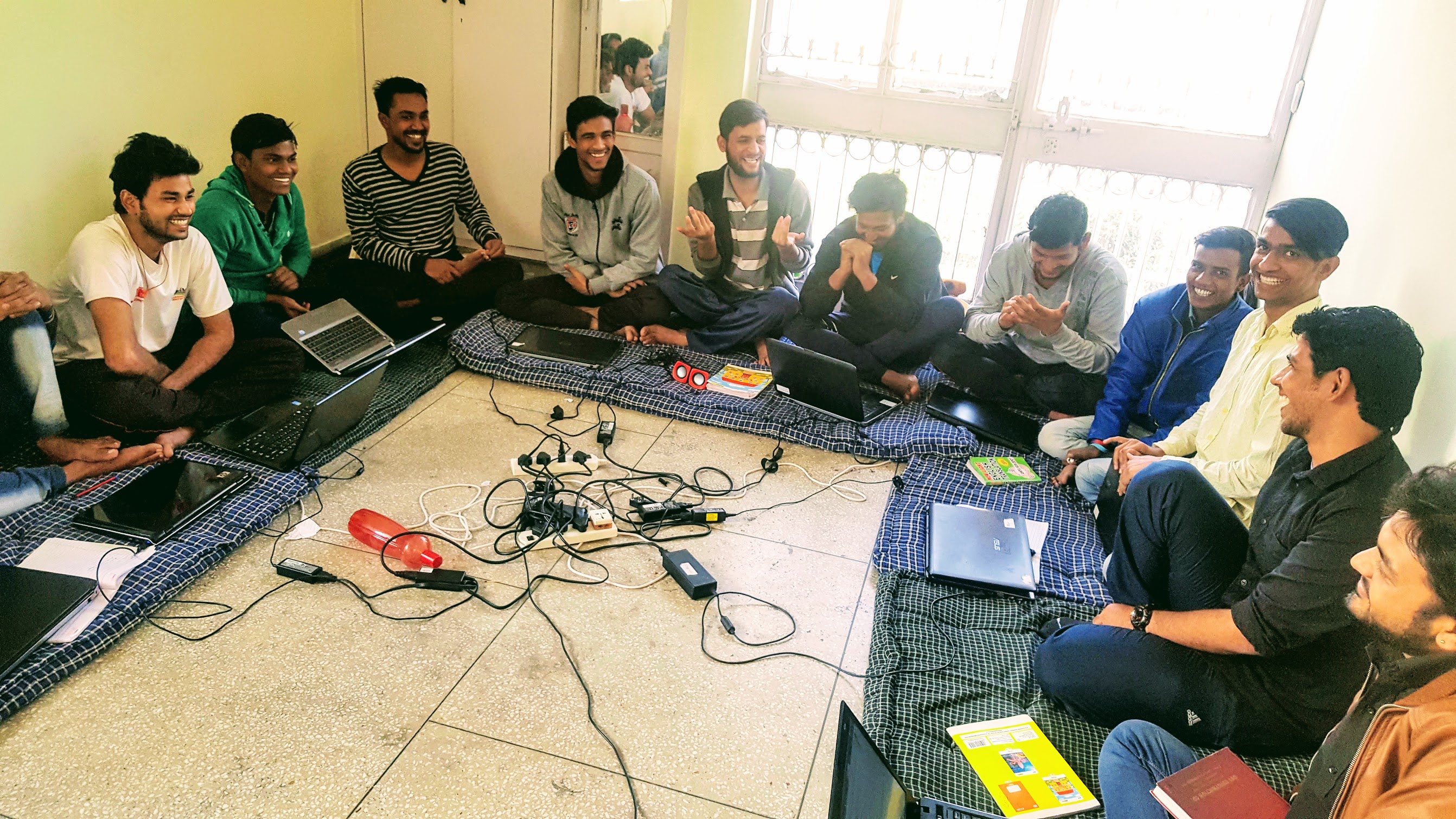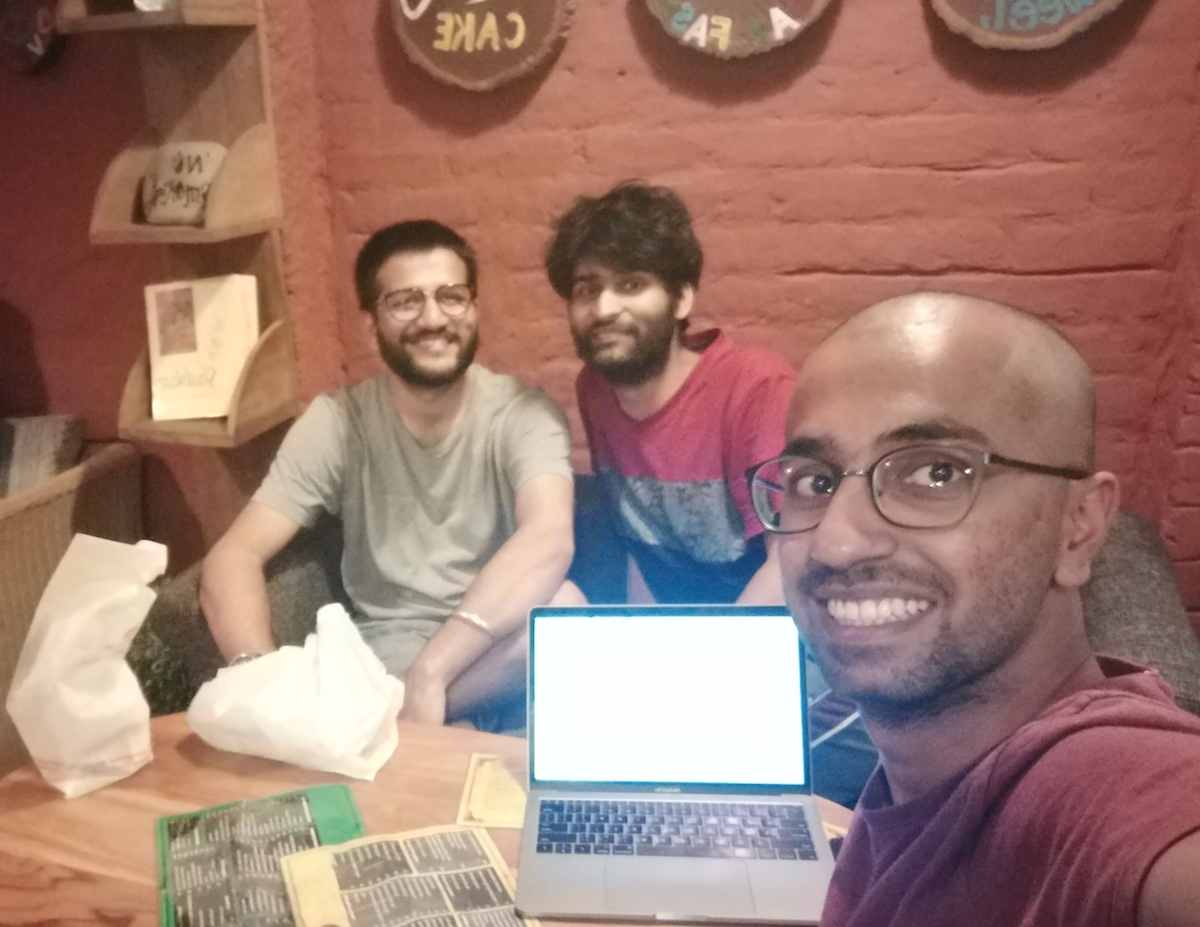How an IIT Alumnus & a School Dropout Are Skilling Underprivileged Students to Get IT Jobs in a Year
“We want to challenge how the higher education space functions."

Shivam, a resident of Delhi, had been living in a shelter home since he was in Class 6. He was always interested in science and wanted to pursue the subject for higher studies. However, restrained by the high cost of studying science in the field and lack of funds, he ended up studying commerce. After school, he started working as helper at a local bakery for ₹5,000 per month.
A few months later, Shivam came across NavGurukul, a non-profit organisation that trains underprivileged students in ‘software engineering’. He joined the course with the desire to learn about computers. From not knowing how to copy and paste files, he can now write complex programming codes and is planning to apply for jobs in the IT sector.
Started in November 2016 by Rishabh Verma and Abhishek Gupta, NavGurukul aims to transform the state of higher education in India.
“We want to challenge how the higher education space functions. Most of the students who join us are typically those who might be attending some distant education programmes but are not going to conventional colleges, or those who have not been able to join college at all,” says Rishabh.
About the founders

An IIT Delhi alumnus, 25-year-old Abhishek founded two startups before he joined the education department of the Delhi government as a volunteer.
Rishabh is a 22-year-old self-taught programmer who quit school after studying till Class 10 because “he didn’t find the education system useful” for his aspirations. He founded a technology company that unfortunately shut in a few years. He then travelled for a year before founding NavGurukul. “I was always passionate about changing the way education works in India because I had already gone through the process of feeling disconnected from the system,” he says.
It was while working on their own initiatives that both Abhishek and Rishabh started volunteering in the education sector and their experiences paved the way for their startup.
The starting point:

The duo realised how the kindergarten to Class 12 journey of students is lined with a series of broken promises.
“For example, there is the promise of good jobs after graduation and post graduation. But, many of these students are studying in mediocre government schools where little attention is paid to their individual needs. And the outcome is really discouraging. They are not equipped with the kind of basic knowledge required to find jobs,” says Rishabh.
He adds that the Indian college system creates multiple barriers of entry in the form of test scores and high fee structures. Young people from underprivileged backgrounds often tend to fall short on these counts.
Moreover, the co-founders opine that college curriculums are disconnected from the reality of the jobs market. The syllabus ignores skills like problem solving and critical thinking that have become crucial for career development. It also implies that employers must spend time training people with skills that they should have learnt in college.
Also read: How a Unique yet Affordable Tech Innovation Is Helping Govt Schools in Remote Villages Go Smart
Abhishek and Rishabh were inspired to start an organisation that would give all students the opportunity to learn in a way that would actually help them in practical matters of the world.
How NavGurukul works

NavGurukul offers a year-long residential programme where students live and learn together. Currently, 10 students in the age group of 18-22 are enrolled in the programme and the founders are working towards enrolling more students.
The institute plans to conduct year-long residential programmes, where students will live and learn about software engineering. Currently, they are halfway through their first batch. “The basic idea is that a student should be skilled with the knowledge to code the backend of any web application after completing the course,” Rishabh says, claiming that their teaching material is at par with the syllabus of a four-year BTech course of average engineering colleges.
From the start of the course, NavGurukul students are taught coding from basic applications to complex problems. They are taught popular programming languages such as Python, JavaScript, AngularJS, HTML, Cascading Style Sheets (CSS), etc.
The organisation is developing a structure that gives precedence to self- and peer-learning over teacher-centric classes. For instance, every application code in the curriculum is restructured into a list of about 500 questions, with additional theoretical information. Students have to take their own initiative to solve these questions while Rishabh and Abhishek act as facilitators and help them through the course.
Students work on small projects using HTML and Python in the first three months. The course intensifies in the next five months as the facilitators introduce practical projects and applications. These might include developing apps for farmers, devising solutions for education in slums, etc. On completing this module, students apply for internships in the industry and get ready for full-time employment.
Keeping in mind the difficulties these students face with communication skills, their enrolment in NavGurukul is based on a visual aptitude test followed by games on mobile phones to test logical knowledge.
Also Read: How 65,000 Underprivileged Persons Learnt to Speak English, Work on Computers & Hold Steady Jobs
While the course is free, Rishabh and Abhishek have developed a revenue-generating model for students to learn while they earn. They accept freelance projects from different companies and help students work on these for a fee. They also translate books from English to Hindi, which improves their communication skills.
While the duo bootstrapped the organisation in the beginning, they have now raised some funds and are working towards a more sustainable model. In the future, they plan to set up a model where students will pay back to NavGurukul only if the organization gets them a job with a minimum salary of ₹15,000. The amount to be paid will depend on the salary.
The result so far

Many of the students enrolled with NavGurukul come from families with a total income of ₹6,000 – 10,000. Today, they are working on codes, solving real-world problems with technology, participating in hackathons and taking up paid projects, all while paving their way towards a rewarding career.
Take for instance Rahul, who wanted to run his own business while in school. His father is a driver and his family couldn’t afford his college education. Rahul started working in a restaurant after Class 12. Today he has different goals, thanks to NavGurukul. Interested in farming and education, he wants to teach other students once he graduates.
In the future, Rishabh wants to expand to more Indian cities and reach students interested in fields other than software engineering as well. He and Abhishek are also inspiring their students to take time and indulge in community development activities like teaching students, developing apps that can help rural areas, etc. once they graduate.
NavGurukul is raising funds and is currently working on taking in more students. Find out more about the organisation here. Donate here.
This story is a part of our series with Accenture in India’s, #SkillsToSucceed initiative, aimed at advancing employment and entrepreneurship opportunities for individuals to drive impact at scale.
Like this story? Or have something to share? Write to us: [email protected], or connect with us on Facebook and Twitter.
NEW: Click here to get positive news on WhatsApp!
If you found our stories insightful, informative, or even just enjoyable, we invite you to consider making a voluntary payment to support the work we do at The Better India. Your contribution helps us continue producing quality content that educates, inspires, and drives positive change.
Choose one of the payment options below for your contribution-
By paying for the stories you value, you directly contribute to sustaining our efforts focused on making a difference in the world. Together, let’s ensure that impactful stories continue to be told and shared, enriching lives and communities alike.
Thank you for your support. Here are some frequently asked questions you might find helpful to know why you are contributing?


This story made me
-
97
-
121
-
89
-
167











